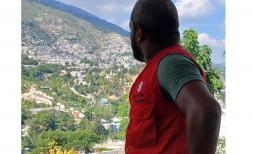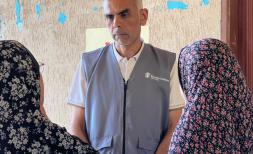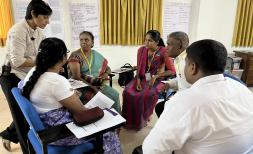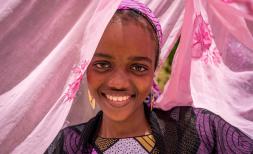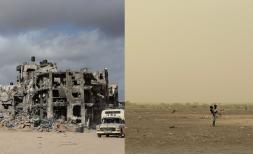Children on the frontline of the Covid and Climate Crisis
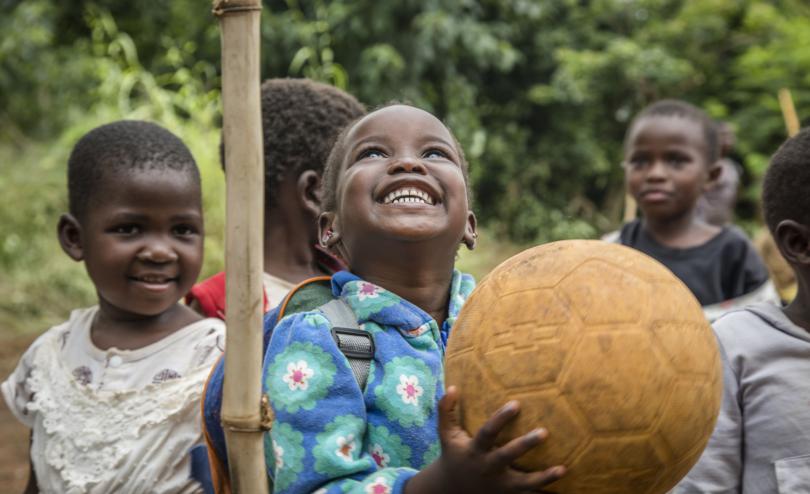
We have many long-acknowledged duties to our children – to provide them with the best possible start in life and the hope for a bright future. In 2019, the World Bank estimated that nearly 60% of children born today will be, at best, only half as productive as they would have been if they’d had access to a complete education and full health[1]. This was before Covid-19.
Children are suffering disproportionately
Children are disproportionately affected by the secondary impacts of Covid-19. The pandemic has impacted their education, family income security, wider health needs and so on - which continue to exacerbate inequalities. The World Bank, UNICEF and Save the Children all predict increases in extreme poverty[2] and global food insecurity is rising at an alarming rate[3]. Children are also at a heightened risk of abuse and exploitation - with up to 2.5 million additional girls potentially forced into marriage by 2025[4]. Now more than ever, the global community needs to focus on simple, effective and well-evidenced solutions to protect all children and their equal rights. One solution and form of ‘social protection’ has particular relevance - universal child benefits.
The Power of Cash
For a long time we have known that cash transfers are one of the best evidenced anti-poverty measures available – with the added benefit of providing dignity and decision making powers to those who receive it. Studies from contexts as diverse as Kenya, Bangladesh and the US have shown that regular cash transfers – especially when provided with links to other services and efforts to address unequal gender norms and power dynamics – can:
- Improve health, nutrition and education outcomes for children;
- Help break the intergenerational cycle of poverty – helping girls stay in school, reducing harmful practices such as child labour and child marriage;
- Help reduce intimate violence in the home, and contribute to the empowerment of women and girls; and
- Improve the resilience of the livelihoods of caregivers[5].
We know cash can have an impact in humanitarian and development contexts – and Save the Children has global experience delivering cash in ways that improve outcomes for children[6]. However, we want more governments to set up proper child benefit systems – to protect children now and from shocks in the future. This becomes increasingly important as we see an increase in shocks related to the climate crisis affecting children’s lives.
Universal child benefits are an important ‘foundation’ to not only end child poverty but to also build a more resilient and inclusive future. Climate change means that coronavirus is not the last crisis. We cannot trust our children’s future to ad hoc temporary responses put in place only when disaster strikes, which risk missing out children who need it most – children with disabilities, children living on the streets or in informal settlements etc. Children deserve proper, resilient systems to be in place - which can easily flex to provide additional support when needed.
Commitments exist – but are not being prioritised
Even with the plethora of new Covid-related social protection measures[7] – we still see some 600 million children (and this is a conservative estimate) not covered by any schemes.
The poverty-reducing impacts of child benefits have been rigorously evaluated[8] – and have been a policy option for decades. For example, universal child benefits were introduced by many countries in Europe in the difficult years following the Second World War, to support recovery, build trust in governments, and create hope for a better future for children. Social protection is so important that it is enshrined in both the Convention on the Rights of the Child[9] and the Sustainable Development Goals[10]. This all makes it clear that such support is the right of every child – all children deserve this protection, no matter who they are or where they are from. They don’t have to do or be anything to deserve it.
Spend Money to Save Money – and Lives
Why am I advocating to spend more money as we head into a recession caused by Covid-19? Because we cannot, in all honesty, afford not to. Prioritising basic income security for children, the foundation for unlocking access to other essential services, is one of the most economically sensible investments that governments can make. Not only are the long-term returns enormous (investing in ‘human capital’) – the money is also likely to be spent supporting local economies, generating short-term benefits too[11]. Universal child benefits also build more equal and inclusive societies – with tax revenue used to support families at a costly time of their lives. These policies will help our societies face the uncertainty of the future – capable of flexing to different models of development that are more regenerative, resilient and sustainable.
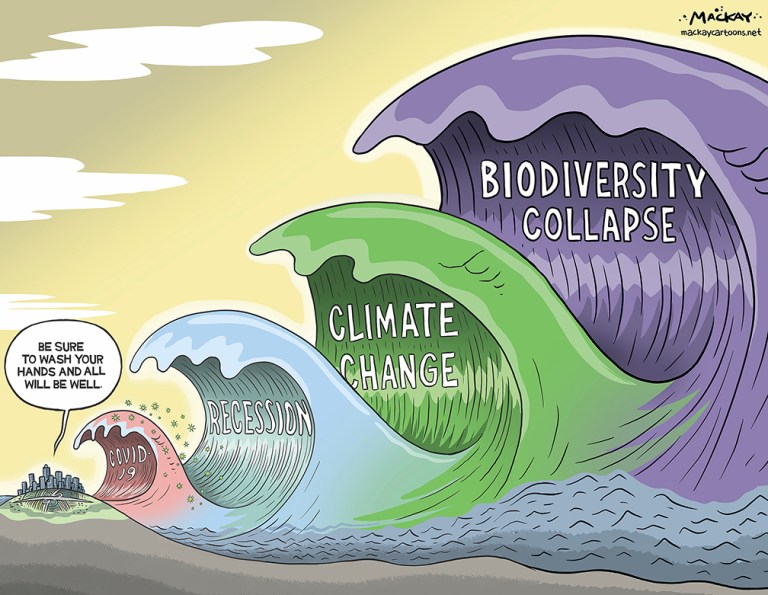
The COVID-19 Tsunami. Source: mackaycartoons.net.
However, what is even more important is that children are suffering right now, as I write. Save the Children’s recent study consulted children all over the world about their priorities – and their answers were heart-breaking: “My parents don’t have money to feed me and my siblings, especially my younger 3-year-old brother who is still small and needs to eat” said one 12-year-old girl from Colombia[12]. All children just want a chance at a decent life – they want to go to school, they want to be able to eat nutritious food and not worry about affording the very basics of life. Our efforts to ‘Build Back Better’ and ‘Build Back Greener’ must also ‘Build Back Equal’ - building foundations of a more inclusive and socially just world for children, with universal child benefits.
All over the world, Save the Children is rapidly adapting existing work whilst preparing for outbreaks of coronavirus in countries with limited capacity to respond.
[1] World Bank (2019) World Development Report – The Changing Nature of Work
[2] Save the Children is monitoring Covid impacts – details information can be found on our Live Tracker
[3] World Food Programme is currently undertaking the largest programme in its history – and is warning of a doubling of the number of people at risk of acute food insecurity – to 270 million - by the end of 2020. For more information read the report here.
[4] Save the Children (Oct 2019) Global Girlhood Report – How COVID-19 is putting progress in peril
[5] For an overview see the ODI paper by Bastagli, F. et al (2016). Cash Transfers: What does the evidence say? A rigorous review of programme impact and of the role of design and implementation features. Also useful is: Chang, W. et al (2020) What works to enhance women’s agency: Cross-cutting lessons from experimental and quasi-experimental studies, J-PAL Working Paper
[6] Harman, L. (2018). The role of cash transfers in Improving Child Outcomes: the importance of child sensitivity and taking a ‘Cash Plus’ approach. London: Save the Children
[7] Ugo Gentilini at the World Bank is maintaining a record of Covid social protection measures here
[8] A landmark report was published this year by ODI/UNICEF (2020) - Universal Child Benefits: Policy Issues and Options.
[9] Convention on the Rights of the Child states the following: Article 26: States Parties shall recognize for every child the right to benefit from social security, including social insurance, and shall take the necessary measures to achieve the full realization of this right in accordance with their national law. Article 27 States Parties recognize the right of every child to a standard of living adequate for the child's physical, mental, spiritual, moral and social development.
[10] SDG Target 1.3 states: 1.3 implement nationally appropriate social protection systems and measures for all, including floors, and by 2030 achieve substantial coverage of the poor and the vulnerable
[11] Thome, K et al (2016) The local economy impacts of social cash transfers: a comparative analysis of seven sub-Saharan countries. Rome: FAO.
[12] For more quotes and information from our survey – please go to this full Protect a Generation report.
